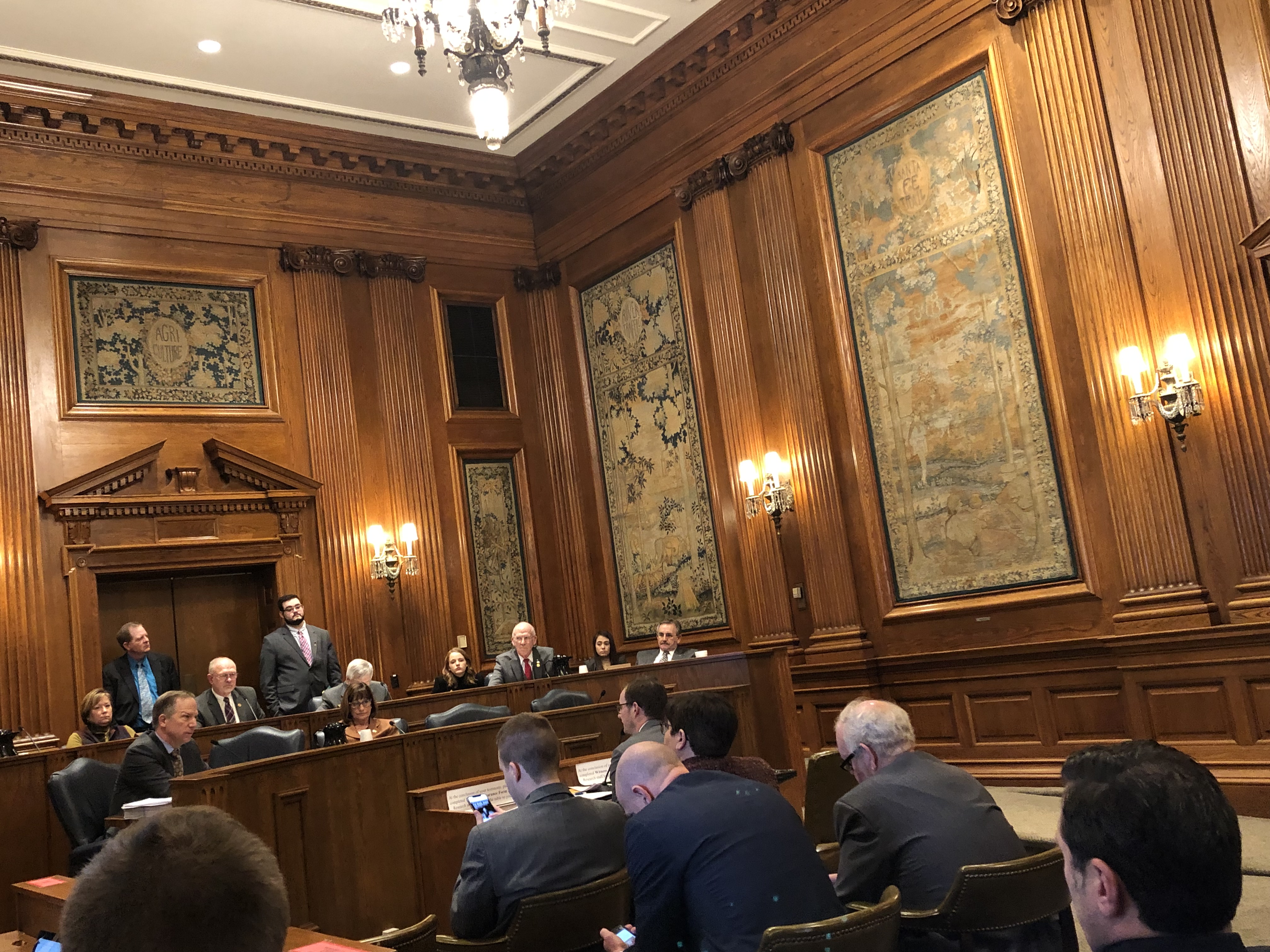JEFFERSON CITY, Mo. — One lawmaker is looking to make sure that all complaints involving assault and sexual misconduct at universities are handled in a way that is fair, equitable, and involves due process. Those involved with the Title IX program at universities said that cases already are.
Dozens of Missourians from across the state shared their personal experiences with how Title IX complaints are handled — in support and opposition — of a proposed measure the would alter the process. Sen. Gary Romine presented SB 259 — identical to Rep. Dean Dohrman’s HB 573 — to the Senate Education Committee on Tuesday afternoon.
“We want to make sure that there is proper due process applied to Title IX…make sure that there is a fair and equitable process that protects the integrity of both parties,” said Romine.
Several of those that testified asked that the measure be put on hold until after the new federal guidelines are officially issued, which will be coming in four to six months. Those individuals are concerned about potential conflicts in the proposed state legislation compared to the draft federal rules. They argued that by waiting, it ensures cohesive guidelines for universities to follow.
Under the legislation, a student at any institution of higher education may request a due process hearing before the Administrative Hearing Commission with respect to any formal Title IX complaint filed with the institution. Students that have received disciplinary action, past or present, would be able to appeal a decision made by the university to the Administrative Hearing Commission.
The bill also allows civil action against a person who makes a false claim or complaint. A student denied due process would be able to seek relief from the employee who made the denial.
The Missouri Attorney General would have the authority to investigate alleged or suspected violations of the grievance procedures set forth in the measure.
“We want to make sure that both the accuser and accused are given an opportunity to protect themselves from undue harm,” said Romine.
He went on to say that the bill will help standardize and improve the process across the state of Missouri.
But opponents of the legislation argued that the way Title IX complaints are handled already fulfill the intention of a fair and equitable process.
“I want to commend the purpose of the bill to ensure that individuals who are part of sexual assault conduct process are treated fairly and given due process,” said Jill Patterson, the Title IX Coordinator for Missouri State University. “The Title IX process at Missouri State University and other institutions throughout the state are already designed with these very principles in mind.”
She went on to say that both parties involved are informed of their rights and the steps on the process. Those involved are allowed an attorney at any step of the process and the university even has advisors trained in the process to advise students. She noted that both parties are given access to the same information, and all information is available for review after a determination is made if there is a preponderance of the evidence.
The hearings are mediated by one person who asks questions and acts as the moderator. Both the accuser and accused are allowed lawyers. While neither side is allowed to directly examine witnesses, they are allowed to submit questions. Witnesses testified that there is an internal appeals process available to anyone who is not satisfied with the outcome of a hearing.
The University of Missouri’s procedure is very similar, according to Assistant Vice Chancellor for Civil Rights and Title IX Andy Hayes.
“This is not a court of law. This is not someone being found guilty,” said Hayes. She noted that these are cases involving the university’s conduct code and the hearings are to determine if that code of conduct has been breached.
Proponents of the legislation argued that the proposed changes of the bill make sure decisions are based on factual information and not on the “whim of the political environment.” Supporters also noted that the measure will guarantee the accused to a lawyer and to have that lawyer speak on their behalf.
Mike Colona, an attorney in St. Louis, argued that the measure creates a uniform way for dealing with Title IX complaints and sets a fair, equitable system that is based on due process. Colona argued that those involved should be allowed a lawyer, they should have access to the university’s policies, and they should be afforded a decision based on sworn facts and statements.
“Please do not look at this as a Republican issue or a Democrat issue. It is not. This is an issue all of us should be concerned about,” said Colona. “We know, we know, sexual assault is a problem on college campuses. The question becomes, ‘How do we deal with it?’”
Instead of each university “reinventing the wheel,” SB 259 would standardize the process in a “fair and equitable” way, he noted.

Alisha Shurr was a reporter for The Missouri Times and The Missouri Times Magazine. She joined The Missouri Times in January 2018 after working as a copy editor for her hometown newspaper in Southern Oregon. Alisha is a graduate of Kansas State University.










